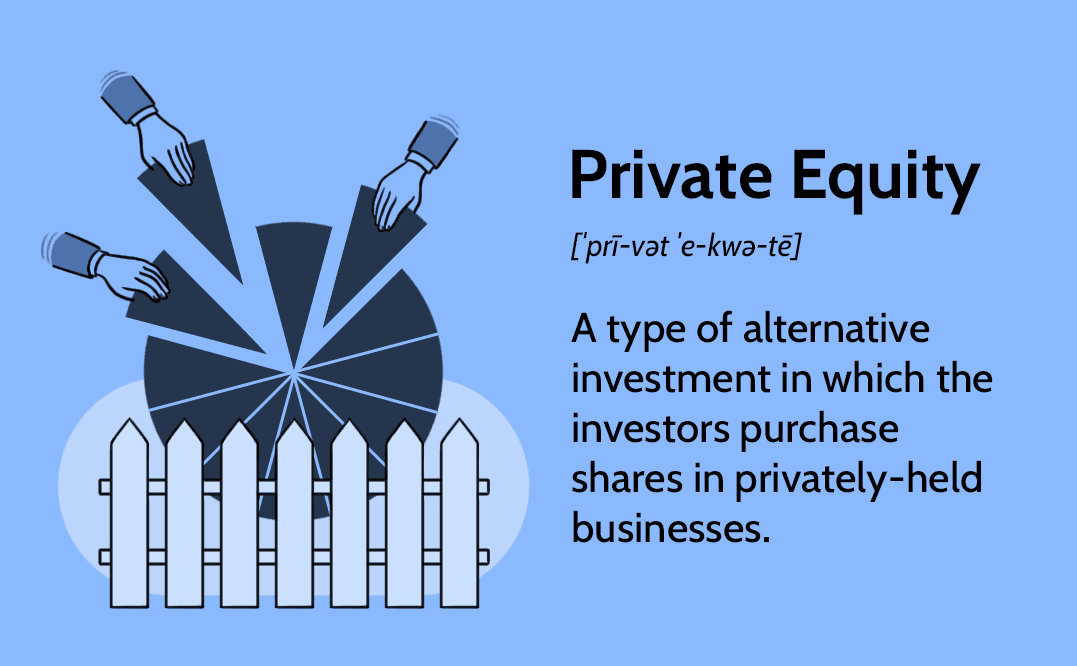What exactly are Private Equity Funds?
Private equity funds are pools of cash that are invested in firms that provide a high rate of return. They have a predetermined investment horizon, which generally ranges from four to seven years, after which the private equity company aims to financially exit the investment. Exit plans include initial public offerings (IPOs) and the selling of the company to another private equity firm or strategic bidder.
Institutional funds and qualified investors are often the key sources of private equity funds since they can offer significant resources over long periods of time. The funds are raised and managed by a team of investment specialists from a certain private equity company.
Equity
Shareholder loans, preferred shares, CCPPO shares, and ordinary shares are the four components of equity.
In most buyouts, the equity percentage amounts for 30% to 40% of the capital. Private equity companies often invest in equity stakes with a four to seven-year exit strategy. Management, private equity firms, subordinated debt holders, and investment banks are all sources of equity capital. In most situations, the equity portion is made up of a mix of all of these sources.
Private Equity Fund Types
Private equity funds are broadly classified into two types: venture capital and buyout or leveraged buyout.
1. VC (Venture Capital)
Venture capital funds are capital pools that generally invest in tiny, early-stage, and developing enterprises with strong growth potential but limited access to other sources of funding. VC funds are an important source of finance for tiny start-ups with ambitious value propositions and innovations since they lack access to huge amounts of debt. From the perspective of an investor, venture capital funds may provide remarkable profits despite the risks associated with investing in unproven fledgling enterprises.
2. Purchase or Leveraged Purchase (LBO)
In contrast to venture capital funds, leveraged buyout funds often take a controlling position in more established enterprises.LBO funds utilize a lot of leverage to get a higher rate of return. Buyout discoveries are often much greater in size than VC funds.
Considerations for Exit
A private equity fund's exit strategy is influenced by a variety of variables. Here are some pertinent questions to consider:
When does the exit have to happen? What is the time horizon for the investment?
Is the executive staff willing and ready to leave?
What departure options are there?
Is the company's current capital structure appropriate?
Is the business strategy suitable?
Who are the possible buyers and sellers? Is it a new private equity company or a strategic acquirer?
What is the expected Internal Rate of Return (IRR)?
Exit Strategies for PE Funds
When opting to withdraw, private equity firms choose one of two approaches: complete exit or partial exit. A trade sale to another buyer, an LBO by another private equity company, or a share buyback are all options for a wholesale departure from the business.
In terms of a partial departure, another investor may acquire a portion of the company via a private placement. Another option is corporate restructuring, in which external investors get involved and grow their ownership in the company by purchasing a portion of the private equity firm's stake. Finally, corporate venturing may occur, in which management expands its shareholding in the company.
Finally, a flotation, often known as an IPO, is a hybrid plan that includes the firm being listed on a public stock market. An IPO often sells just a portion of a firm, ranging from 25% to 50% of the company. When a company is listed and traded publicly, private equity firms gradually unwind their residual ownership position in the company.
Additional Information
Thank you for taking the time to read CFI's guide to Private Equity Funds. The following resources will assist you in continuing to study and advance your career:
- Career Guide to Private Equity Revenue-Based Financing Search Fund Equity Capital Market (ECM) Guide
- Check out all of our money management resources.
- All capital markets resources may be found here.












.jpg)